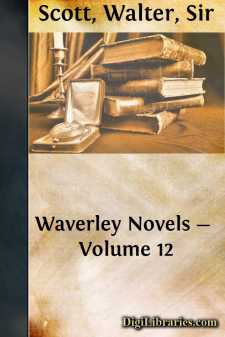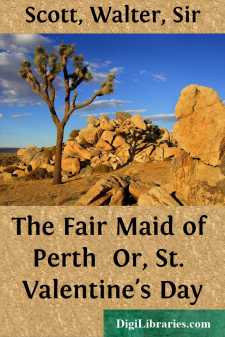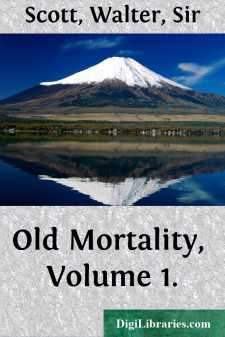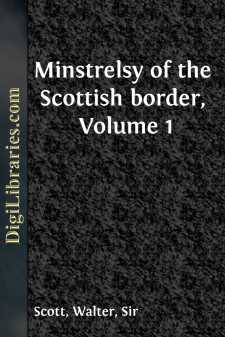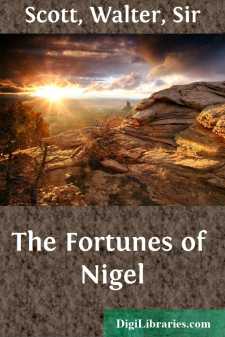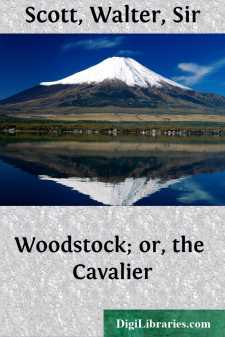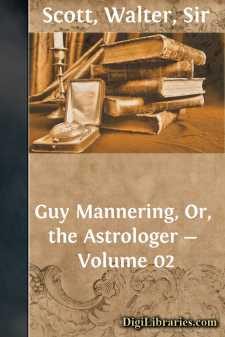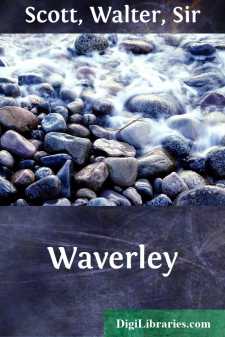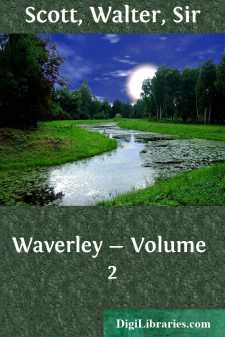Categories
- Antiques & Collectibles 13
- Architecture 36
- Art 48
- Bibles 22
- Biography & Autobiography 813
- Body, Mind & Spirit 142
- Business & Economics 28
- Children's Books 17
- Children's Fiction 14
- Computers 4
- Cooking 94
- Crafts & Hobbies 4
- Drama 346
- Education 46
- Family & Relationships 57
- Fiction 11829
- Games 19
- Gardening 17
- Health & Fitness 34
- History 1377
- House & Home 1
- Humor 147
- Juvenile Fiction 1873
- Juvenile Nonfiction 202
- Language Arts & Disciplines 88
- Law 16
- Literary Collections 686
- Literary Criticism 179
- Mathematics 13
- Medical 41
- Music 40
- Nature 179
- Non-Classifiable 1768
- Performing Arts 7
- Periodicals 1453
- Philosophy 64
- Photography 2
- Poetry 896
- Political Science 203
- Psychology 42
- Reference 154
- Religion 513
- Science 126
- Self-Help 84
- Social Science 81
- Sports & Recreation 34
- Study Aids 3
- Technology & Engineering 59
- Transportation 23
- Travel 463
- True Crime 29
Sort by:
by:
Walter Scott
Sir Walter Scott transmitted from Naples, in February, 1832, an Introduction for CASTLE DANGEROUS; but if he ever wrote one for a second Edition of ROBERT OF PARIS, it has not been discovered among his papers. Some notes, chiefly extracts from the books which he had been observed to consult while dictating this novel, are now appended to its pages; and in addition to what the author had given in the...
more...
by:
Walter Scott
CHAPTER I. "Behold the Tiber," the vain Roman cried,Viewing the ample Tay from Baiglie's side;But where's the Scot that would the vaunt repay,And hail the puny Tiber for the Tay? Anonymous. Among all the provinces in Scotland, if an intelligent stranger were asked to describe the most varied and the most beautiful, it is probable he would name the county of Perth. A native also of any...
more...
by:
Walter Scott
In the old Stock of Fife, there was not perhaps an individual whose exertions were followed by consequences of such a remarkable nature as those of Davie Duff, popularly called "The Thane of Fife," who, from a very humble parentage, rose to fill one of the chairs of the magistracy of his native burgh. By industry and economy in early life, he obtained the means of erecting, solely on his own...
more...
by:
Walter Scott
The origin of "Old Mortality," perhaps the best of Scott's historical romances, is well known. In May, 1816, Mr. Joseph Train, the gauger from Galloway, breakfasted with Scott in Castle Street. He brought gifts in his hand,—a relic of Rob Roy, and a parcel of traditions. Among these was a letter from Mr. Broadfoot, schoolmaster in Pennington, who facetiously signed himself...
more...
by:
Walter Scott
INTRODUCTION. From the remote period; when the Roman province was contracted by the ramparts of Severus, until the union of the kingdoms, the borders of Scotland formed the stage, upon which were presented the most memorable conflicts of two gallant nations. The inhabitants, at the commencement of this aera, formed the first wave of the torrent which assaulted, and finally overwhelmed, the barriers of...
more...
by:
Walter Scott
INTRODUCTION But why should lordlings all our praise engross? Rise, honest man, and sing the Man of Ross. Pope Having, in the tale of the Heart of Mid-Lothian, succeeded in some degree in awakening an interest in behalf of one devoid of those accomplishments which belong to a heroine almost by right, I was next tempted to choose a hero upon the same unpromising plan; and as worth of character,...
more...
by:
Walter Scott
APPENDIX NO. I. THE WOODSTOCK SCUFFLE; or, Most dreadfull apparitions that were lately seene in the Mannor-house of Woodstock, neere Oxford, to the great terror and the wonderful amazement of all there that did behold them. It were a wonder if one unites,And not of wonders and strange sights;For ev'ry where such things affrightsPoore people, That men are ev'n at their wits' end;God...
more...
by:
Walter Scott
A man may see how this world goes with no eyes. Look with thine ears. See how yon justice rails upon yon simple thief. Hark in thine ear: Change places; and, handy-dandy, which is the justice, which is the thief? —King Lear. Among those who took the most lively interest in endeavouring to discover the person by whom young Charles Hazlewood had been waylaid and wounded was Gilbert Glossin, Esquire,...
more...
by:
Walter Scott
GENERAL PREFACE TO THE WAVERLEY NOVELS And must I ravel outMy weaved-up follies? Richard II, Act IV. Having undertaken to give an Introductory Account of the compositions which are here offered to the public, with Notes and Illustrations, the Author, under whose name they are now for the first time collected, feels that he has the delicate task of speaking...
more...
by:
Walter Scott
AN INCIDENT The dinner hour of Scotland Sixty Years Since was two o'clock. It was therefore about four o'clock of a delightful autumn afternoon that Mr. Gilfillan commenced his march, in hopes, although Stirling was eighteen miles distant, he might be able, by becoming a borrower of the night for an hour or two, to reach it that evening. He therefore put forth his strength, and marched...
more...


